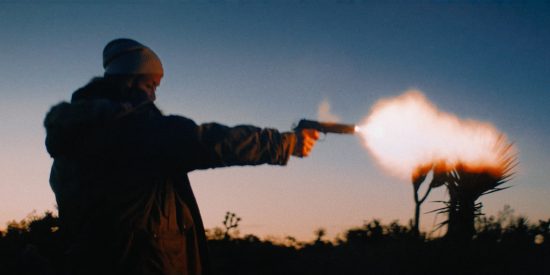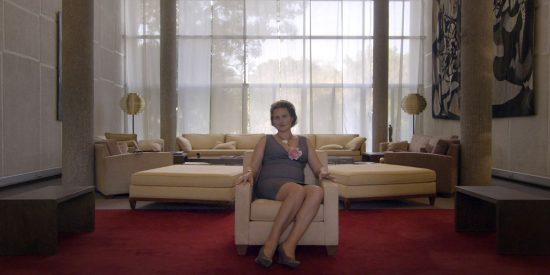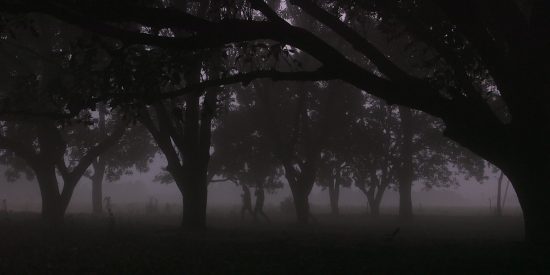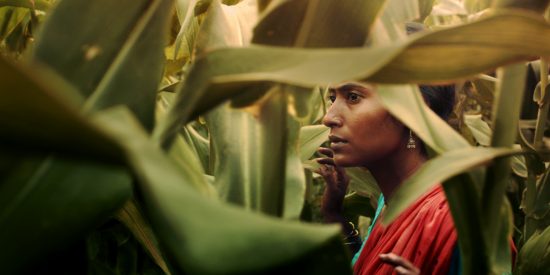TIFF’s Short Film Selection Packs an Emotional Punch
As a self professed critic, I’ve been writing in the public arena about film for about eight years now (we’ll forget the dabble of a film blog I tried to start in university, read only by one of my professors and likely ridiculed by my classmates). However, the one realm I haven’t entered is that of short film. Considering in the history of the moving picture that all films started out as short, it seems like an art form that often gets forgotten, until you reach that category in your Oscar pool that reminds you that there are those passionate, and understandably so, about these projects.
So, while we are gearing up here for the Toronto International film Festival beginning next week, it seemed an opportune time to try some shorts on for size – and I didn’t realize that I was in for such an emotional ride. TIFF’s short programme, called Short Cuts, this year is comprised of 36 films from all over the world, a diverse group of people to tell stories in narrative, documentary, and animated form. With 54% of the directors in this group of films being women, it seemed a great place to start in my focus this festival and the shorts I watched had a lot to say about feminism, family, and the world we all live in.
EXIT – Directed by Claire Edmondson
It’s amazing what emotional punch you can pack into just shy of 15 minutes. My favourite of the shorts I watched is powered by stunning visuals from Canadian director Claire Edmondson and an outstanding performance by Maria Bello. EXIT will have you completely immersed and invested in the protagonist’s story. Bello’s character appears to go through all stages of grief and loss, while through intricate detail and assumptions we discover the loss is that which coincides with an irreversible decision. With the world premiere of this short film happening at TIF this year, Edmondson is clear to garner some attention. While she has had previous success at Cannes and Tribeca, her inspired handling of a controversial subject matter solidifies her voice as one to watch. I’m still thinking about this film a week later, certainly a compliment to its profound impact and one I’m sure will affect most audiences.
The Ambassador’s Wife – Directed by Theresa Traore Dahlberg
Tracing the life of the French Ambassador’s wife, director Dahlberg looked to make a “Situation portrait rather than a personal portrait,” and that’s exactly what she’s done. Once a woman who longed to be an opera singer, the Ambassador’s wife is now giving personal singing lessons to a small group of women, one of the only times she’s shown engaging with others in Ouagadougou, Burkina Faso. While she lives a privileged life, it is a solitary one. She is surrounded only by workers that constantly seem to be making improvements within the impressive grounds of the compound, creating loud penetrating noises that seem to solidify her presence within a “golden cage”. This well constructed documentary is a somewhat heartbreaking reminder of what this woman has given up, what is expected, and the toll it has taken on its subject.
Circle – Directed by Jayisha Patel
This documentary was one I watched unfold in wide-eyed horror, proving that often the most important films are not the easiest to watch. The film follows Khushbu a rape survivor in Uttar Predesh, India and as her story is revealed through thoughtful conversation you realize just how deep her physical and emotional abuse runs. During one moment she is asked, “How do you feel?” and she pauses for a moment until she simply replies, “Feel…” and trails off, as if she has lost the meaning of the word, or wants to forget it.
Director Patel, herself a survivor of sexual abuse, lends a unique lens through which to view her subject’s story. The environment of patriarchy is immediately felt through the director’s eye and while men seem to wander in the area’s natural beauty, the women seemed trapped within. As Patel herself notes, “Through Kushbu’s story, we explore how patriarchy can lead to internalized misogyny. Whilst the film is steeped in specificity, this is universal. Beyond rural India, no region is immune to such manifestations of power, as the high numbers of American women voting for Trump can also reveal.”
The Field– Directed by Sandhya Suri
The Field takes us back in India, albeit in narrative form this time. This short follows Lalla, an agricultural worker in rural India whose inhabitants are about to harvest the last remaining corn field. But the field is more than just corn to Lalla – it is a refuge for her to escape her day to day life, with a husband who expects her to do all the work and two children who depend on her readily. The field for this woman is a place where she can be a different person and have a life that is hers. Director Suri, whose history is in documentary film making, is clear in her narrative and already has a good eye for story telling. So much so that the end of this short may have you wanting more, and wondering just where Lalla can go from here, wondering where next she will grasp a bit of freedom to escape the patriarchal ideals within which she lives.
Dodgy Dave – Directed by Charlotte Regan
Out of the UK comes Dodgy Dave, a look at a father and son duo as the elder teaches his boy the ropes of his job as a drug dealer. Though this film is less about the criminality of his work and about the bond that they forge during their time together. Regan, who grew up in London, prefers to consider that not all drug dealers are dark, violent characters, that some of them are just people trying to get by, to make a living. As such, she adds that this short is “mostly just about showing the light in what people consider as dark.” Her choice to film in black and white somewhat highlights this statement. Regan’s first short film, Standby, premiered at TIFF in 2016 and went to be nominated for a BAFTA. This prolific director (her IMDb profile already has three 2018 credits to her name) proves with Dodgy Dave that she is a unique voice for the stories of the working class.
antes mis ojo – Directed by Lina Rodriguez
The above still from this short is representative of what you can expect from Colombian-Canadian director Lina Rodriguez. The interspersed frames of this project are shot on grainy, Super 8 like film which give it a feel like you’ve found someone’s old vacation videos. The images are of Lake Guatavita in Colombia, largely thought to be the inspiration for the legend of El Dorado. While there is some Spanish narration, the natural sounds of the landscape accompany the majority of the film. However this film doesn’t really fit documentary style film making, nor narrative, playing more like an art installation. It makes sense then that it is actually part of the “Wavelengths” program at TIFF, described as ‘Daring, visionary and autonomous voices. Film art in the cinema and beyond’.
Alongside the films mentioned above, look for Charles Williams‘ Palme d’Or winning short All These Creatures, Reed Van Dyk‘s Interior (he recently was nominated for an Oscar for DeKalb Elementary) and animated short The Call from Anca Damian as possible highlights this year.
For more information on all of the above films visit tiff.net















